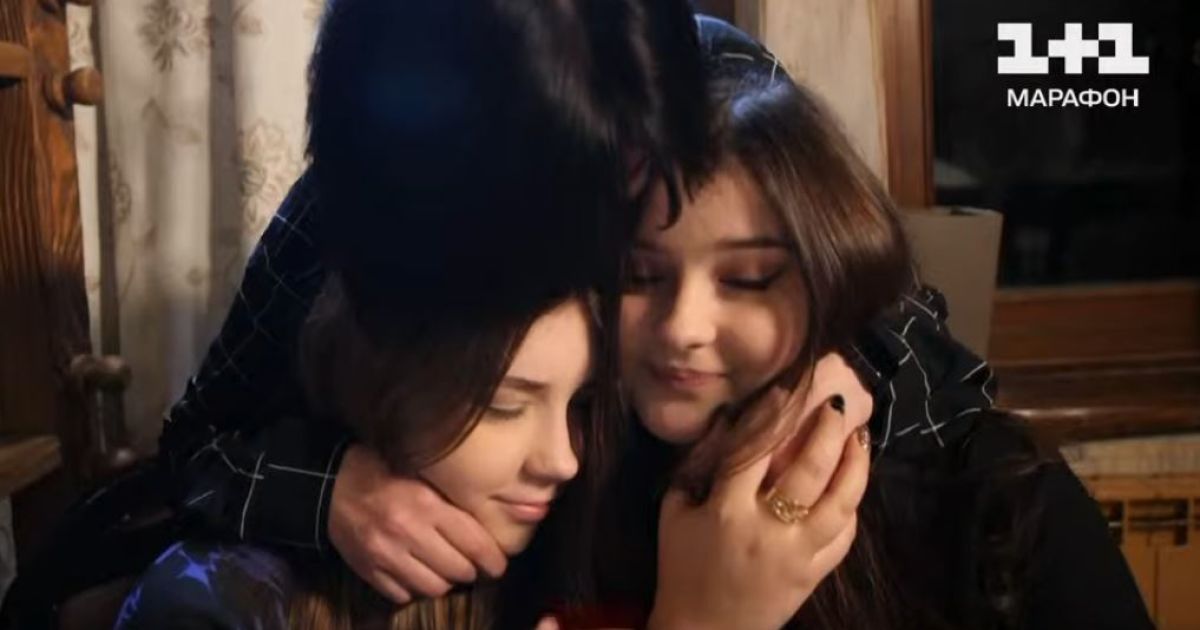Sisters 14-year-old Khrystyna and 21-year-old Vlada Mordika spent the entire war alone.
Their father managed to send the girls from Mariupol to Prykarpattia.
Machine gunner Serhii Mordik died on "Azovstal", and their mother Elena was taken prisoner by the Russians.
The girls had to identify their father's body and bury it themselves, they waited for a meeting with their mother for 7 months, TSN reports.
Their family loses their home for the second time.
For the first time - near Donetsk in 2014.
Dad knew that there would be a full-scale war, and 10 days before the invasion, he sent the girls from Mariupol to Ivano-Frankivsk.
On February 15, they saw each other for the last time, all they knew was that their parents were somewhere in the Azovstal bunkers.
In peacetime, in the "Azov" regiment, parents managed workshops, mother - sewing, and father - repair.
After the invasion, they were mobilized and ended up together in Azovstal, but in different bunkers.
Sergeant Serhii Mordik with the call sign "Shakhtar" becomes a machine gunner in the special response group.
Sergeant Olena Mordik with the call sign "Chess player" finds herself in a managerial position.
They did not see each other once for a month, the density of shelling on "Azovstal" was such that it was difficult to get from bunker to bunker.
When the connection broke through, he wrote a poetic confession of love for Elena called "From the basement to the basement", and later he did the impossible.
"I look up, my husband enters the bunker.
It was happiness.
I didn't expect to see him, we corresponded and he said that it was probably not fate, I would definitely not see him again,
It was April 28, they recorded a short video together for children.
The day after this meeting, Serhii died in a car when their group was covered with 120 landmines.
The brother carried Serhiy to the hospital on his own.
"He died on the operating table, his arm was torn off, his leg was crushed," Olena recalls.
"I turn on the phone and see a message that, daughter, dad has died.
He is a hero, be proud of him," Vlada recalls.
Exactly one week after their father's death, the girls lose contact with their mother for many months, because the Russians destroyed the bunker where Elena was staying with aerial bombs - 70 people died, 14 survived, among them the mother of Khrystyna and Vlada.
"The rocket hit the bunker, I woke up, I didn't understand what was happening, everything was burning and exploding.
I was crushed by the wall, I started to move, my brother supported me: "Lena, are you alive?".
I say yes," the woman recalls the experience.
She had a broken arm, which can barely move even now, a broken head, and burns on her body.
In this state, Olena was captured along with all the defenders of Mariupol.
"I learned to cry quietly, I just turned to the wall at night and just cried quietly.
There was nowhere to be alone to mourn him," the woman shares.
In addition to her mother, Vlady's fiance, also a defender of Mariupol, was captured.
All the worries about life in a new place for them, Khrystyna, education fall on the senior Vlada.
Each of her days began and ended with appeals to institutions dealing with prisoners and searching for the dead.
Serhiy Mordyk's body was returned to the controlled territory of Ukraine during the first exchange back in the summer, but the condition was such that even a DNA examination could not immediately identify him.
"They tried to extract his DNA 9 times," his relatives say.
When it was confirmed that this was the body of their father, the children had to bury their father.
"We decided to cremate him because we didn't know when mom would come back, where we would live, because we don't have a home," the sisters say about their decision.
Neither relatives nor friends could say goodbye to dad.
"Many people came to all the funerals, and at ours - I stand, my little sister, and all the servicemen.
We asked to put this flag, we bought it ourselves on the coffin, and when we said our last words, we hung this flag," the girls said.
The "Azov" flag and the Order for Courage are all that remain of material things in memory of my father - Serhiy Mordik, a soldier of the "Azov" regiment with the call sign "Shakhtar", the defender of Mariupol.
From that moment on, Vlada and Khrystyna prayed only that their mother would remain alive in captivity.
They looked at every video from the exchange, and at the end of September they heard the most desired voice from an unknown number.
"After 7 months, we heard my mother when she said that I am coming to you children," the girls recalled.
A day after the call, they were able to see each other.
"We hugged, kept silent and cried," they recall.
Now all their evenings pass like this, they cannot get together and talk.
Their conversations are references to dad.
It is now very important for girls to restore their mother's health.
Wait for Vlada's fiance to be captured.
And find your home.
Home, the girls say, is where the flag that covered their father's coffin can be hung in a permanent place and not have to transport this priceless thing to them from town to town.
Read also:
"Mom, are we all going to die here?": a 9-year-old boy from Sumy survived the horrors of war thanks to his own book
In the Izyum Oblast, people saw the light in their homes for the first time in 9 months: how did they survive
Kherson experienced a new powerful shelling: the Russians covered one of the districts with a solid square
